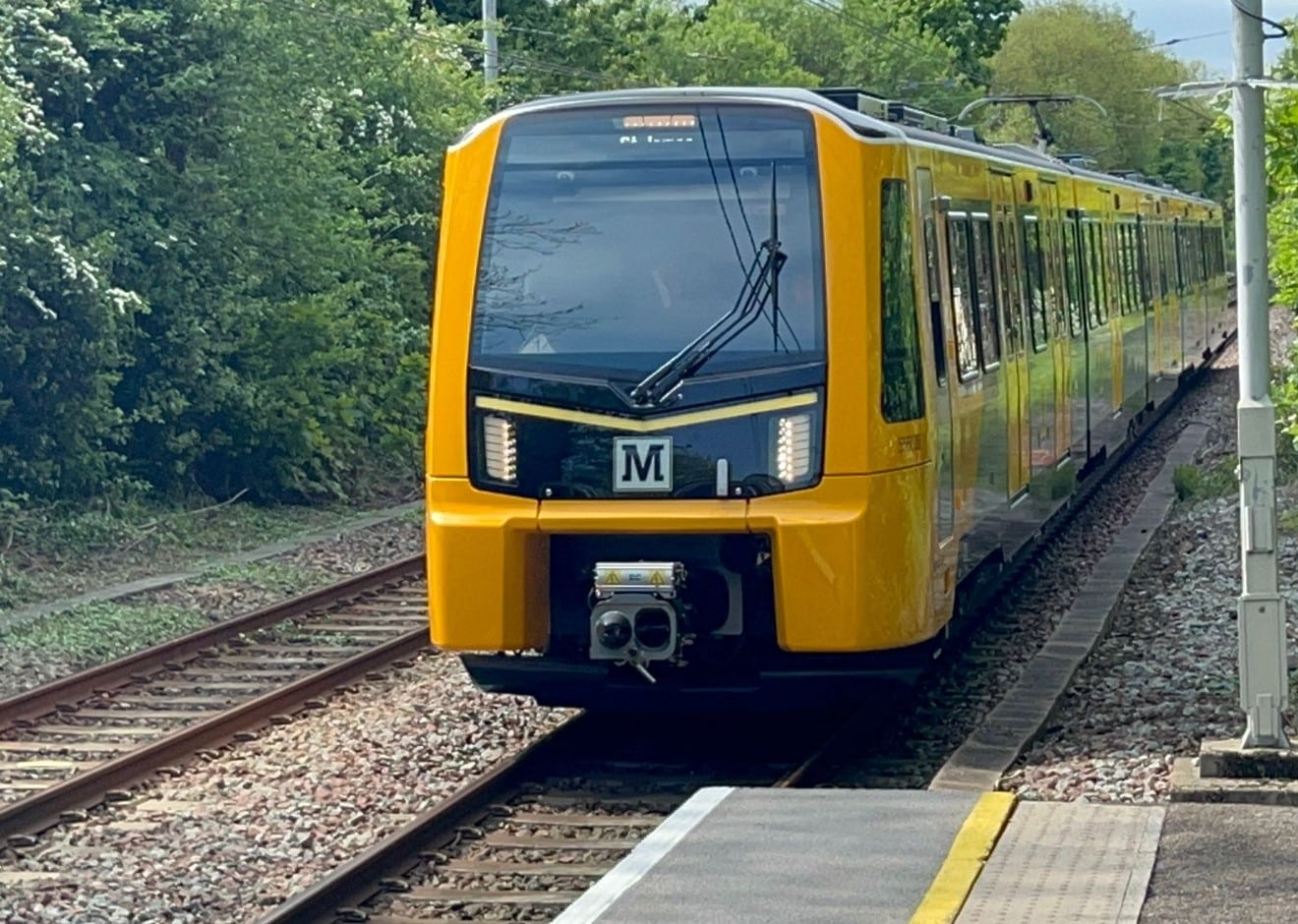Metro customers are getting their first chance to see the new trains out on the system as daytime testing gets underway – marking a new major milestone for the £362 million programme.
Nexus, the public body which runs Metro, said this was the next significant step in getting the new Stadler trains ready to enter service later this year.
The daytime testing began at 2pm today, Wednesday 15 May, when a new Metro train operated in the gaps between timetabled services provided by the current fleet on Metro’s coastal route between Newcastle and North Tyneside.
It allows for a process known as kilometre accumulation, putting the trains through their paces by simulating customer service, and follows a detailed testing phase which has been talking place during the night.
The public will be unable to get on board the new trains at this stage. Special netting has been fitted to each set of doors to prevent anyone getting on should the train stop at a station. Announcements will also be made over the public address system and Nexus employees will be in the carriages to advise customers the train is in test.
Stadler, the Swiss train manufacturer, are building 46 new Metro trains, which are set to herald a new era of comfort, quality and reliability. Two more new trains arrived in April, bringing the total number now delivered up to seven.
Stadler has now built 23 new Metro trains, half of the total order it is delivering for Nexus.
North East Mayor, Kim McGuinness, said: “The North East deserves the best public transport system. I have promised to deliver the best connected and greenest network in the UK and that’s exactly what we’ll do.
“Our region’s new £362m fleet will be transformational by improving comfort and reliability for the people who use the Metro every day to travel to work or to get to school or college.
“It’s great to see testing underway today thanks to a lot of hard work by the team at Nexus.
“We’ll make sure an improved service is up and running as soon as possible.”
Michael Richardson, Head of Fleet and Depot Replacement at Nexus, said: “We’re excited to have our first new trains in daytime testing on the network, which will give customers a chance to see them for the first time.
“This marks a new milestone in our £362m Metro Fleet programme. It’s a big step forward as we continue to get the first few trains ready for customer service.
“We will be working closely with Stadler during the daytime test runs, with the new train slotted in between other timetabled services.
“Customers are going to see the new trains on different parts of the network. Unfortunately, they won’t be able to get on board at this stage as it’s still in the live testing phase. Special signage will be attached to every set of doors to advise people the train is under test and that they can’t board the carriage.
“Testing the new trains is the most complex and challenging part of what is the biggest project we’ve undertaken since the Metro system was first built.
“There is great attention to detail. It’s very much like the testing that a car manufacturer undertakes when it’s preparing to unveil a new model. The trains need to be put through their paces to ensure that they are ready for day to day customer service.”
Patrick Küng, project manager for Stadler, said: “Our next stage of testing will be focused on kilometre accumulation, during which trains must run without faults affecting service longer than three minutes over significant distances, in order stress-test the overall reliability of the units. This ultimately enables Stadler to supply trains with high levels of reliability, enhancing the passenger experience.”
Testing the Stadler Class 555 Metro trains includes 90,000 individual checks. This had previously been taking place overnight when the Metro network is closed. It covers everything from seats and windscreen wipers, to more big-ticket items like brakes, CCTV, doors, wheels, and power supply.
There are approximately 19,000 hours of training time, with the first few trains completing 37,000 kilometres of running, as part of the testing phase.
There are around 22,000 standards and clauses to comply with and 480 staff to train up.
Testing is there is to ensure that the new trains work safely and seamlessly with Metro’s 60 stations and 77 kilometres of track.
All of the on-board customer information systems need to be checked and be working correctly, along with the emergency settings and fail-safe systems.
Power consumption, ride quality, and performance reliability are all being scrutinised thoroughly.
This started with some basic functionality testing within the depot and the first trains started to be tested on our Nexus network in May 2023.
It involves the same level of detail that a big car manufacturer undertakes when bringing a new model to the market, Nexus said.


